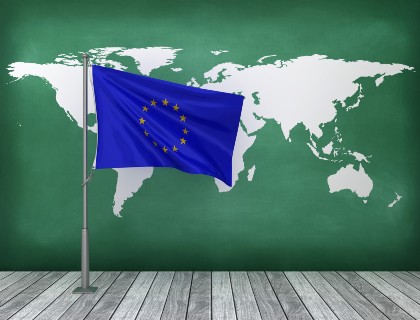What puts Nordic countries at the top of the sustainability rankings?
Norway is the most sustainable country in the world. Sweden, Finland and Denmark are hot on its heels.
Nordic countries are not only leaders in education and the welfare state, they even dominate in happiness rankings. It's the same with sustainability. This group of northern European countries has once again dominated RobercoSAM's rankings. These rankings take into account countries' positioning in terms of environmental investment, social investment and governance.
Norway, the most sustainable country in the world
Norway is the most sustainable country in the world. But it's not the only Scandinavian country that tops the list. Sweden, Finland and Denmark are hot on its heels. These countries have held these positions for years thanks to their leadership in governance, innovation, human capital and environmental indicators, according to RobecoSAM.
States are one of the key players in achieving a more sustainable planet. Their decisions and policies directly affect the environment and the development of their communities. And it seems that this is a lesson that the Nordic countries have well and truly learnt.
Just a few months ago, the Norwegian parliament approved a proposal to achieve climate neutrality by 2030, two decades earlier than planned. The European Union, for example, aims to be climate neutral by 2050.

To this end, Norway has launched a scheme for accelerated carbon dioxide emissions cuts and carbon offsetting to reduce emissions in the country's most polluted areas. These are the areas where the oil and gas industry operates, activity which is expected to disappear in the near future.
Norway's commitment to renewable energy is steadfast. According to the International Hydropower Association, hydropower energy accounts for approximately 95% of the country's energy production. Moreover, the country is currently in the process of banning the sale of fossil-fuel-powered cars. By 2025, all vehicles in circulation must be powered by green energy. In fact, Norway is already one of the countries with the most electric cars per capita.
Resources are limited
Sustainability is concerned with accepting that nature and the environment are not inexhaustible resources and that it is necessary to protect them and use them rationally. In this sense, Finland has become the world's first country to establish a roadmap to the efficient and sustainable use of resources. As far as the country is concerned, the circular economy is a state matter.
The roadmap was developed through close collaboration between representatives of the public sector, the private sector and the general public. It features measures that affect state administration, towns and cities, businesses and the daily lives of the Finnish people.
The best example of this is Sitra, an innovation fund created by the Finnish Parliament over 50 years ago and which aims to promote a new model of society. With an annual budget of EUR 30 million, Sitra supports Finland's most innovative, sustainable and efficient circular economy projects in order to shape the future.
Green states
Denmark is a trailblazer when it comes to the green transition. Since 1996, it has successfully cut its CO2 emissions by more than half. In 2019, 47% of the electricity generated in the country was from wind power. It also has State of Green — an association of Danish companies, governmental and academic institutions, experts and researchers from Denmark founded in 2008 that seeks relevant solutions that enable the green transition.
They work to drive the global transition to a sustainable, low-carbon, resource-efficient society. Their work encompasses renewable energies, energy efficiency, water management, waste management, climate adaptation, circular economy and integrated urban solutions.
Towards a sustainable future
Not only are the Nordic countries at the forefront of sustainability rankings, they also intend to take on international climate leadership. Earlier this year, the governments of the Nordic countries pledged to make their region the most sustainable and integrated region in the world by 2030 and to demonstrate leadership in the fight against climate change.
Although concrete objectives still need to be set, a joint statement by the Nordic Council—comprising Iceland, Denmark, Sweden, Norway and Finland—establishes three priority strategic areas: the transition to a green economy, ensuring competitiveness in the region and promoting social sustainability.
The fact is that these countries' efforts to try to curb climate change makes them truly deserving of the top spots in these rankings. These states that have shown that sustainability is the only viable way forward.
Sources: RobecoSAM, The Guardian, Asociación Internacional de Energía Hidráulica, Unión Europea, State of Green







